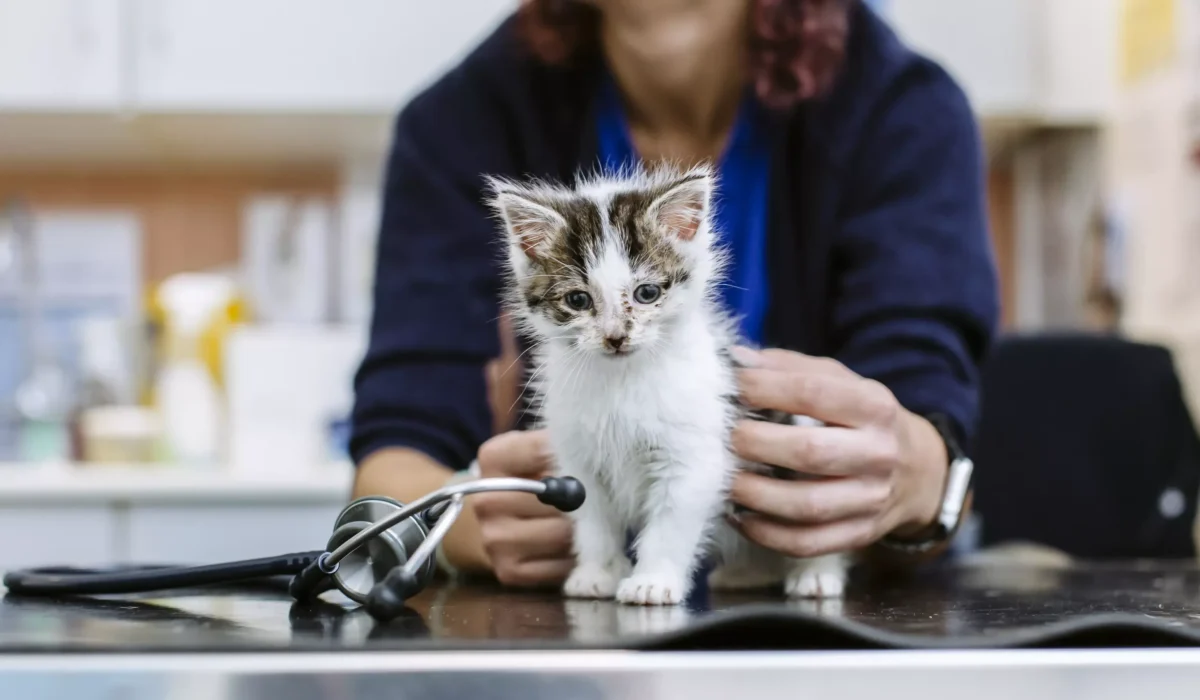How to Deworm a Cat: A Complete Guide to Keeping Your Feline Healthy
Cats are beloved companions, bringing joy, comfort, and mischief into our lives. However, like all pets, they are susceptible to various health issues, including parasitic infections. One common concern among cat owners is how to deworm a cat effectively and safely. Parasites such as roundworms, tapeworms, hookworms, and others can cause health problems, stunt growth, and even be transmitted to humans. In this comprehensive guide, we will walk you through everything you need to know about deworming your cat, from recognizing signs of infestation to choosing the right treatment and preventing future infections.
Why Deworming Is Essential for Cats
Understanding why deworming is essential is the first step toward healthier, happier cats. Deworming is not just about treating suspected infections but also about preventive care. Internal parasites are incredibly common in cats, especially those with outdoor access or those in multi-pet households.
The Risks of Untreated Worms
- Malnutrition and weight loss
- Diarrhea and vomiting
- Anemia
- Damage to the intestinal lining
- Transmission of parasites to humans, especially children
In severe cases, worm infestations can become life-threatening. That’s why routine deworming should be a fundamental part of your cat’s health care plan.
How Common Are Worms in Cats?
Studies show that over 60% of cats may be infected with one or more types of worms at some point in their lives. Kittens are especially vulnerable since they often pick up worms via their mother’s milk or from contaminated environments. Adult cats can also harbor worms, often without showing obvious signs, making regular deworming crucial.
Recognizing the Signs That Your Cat Needs Deworming
Not all cats exhibit overt symptoms of worm infections, which makes regular check-ups and routine deworming all the more important. However, some signs can indicate that your cat may have worms:
- Lethargy and weakness: Parasites drain nutrients, leading to fatigue.
- Vomiting or diarrhea: Worms and their eggs can irritate the digestive system.
- Weight loss despite normal eating habits: A lack of nutrients absorption.
- Potbelly appearance: Common in kittens with heavy infestations.
- Scooting or licking anal area: Indicates tapeworms or other parasites.
- Visible worms in feces or around the anus: Often seen in more severe cases.
- Dull coat and poor condition: Parasites can cause overall poor health.
If you notice any of these symptoms, it’s time to consult your veterinarian and consider deworming your cat.
How to Deworm a Cat: Step-by-Step Guide
Now that you understand the importance of deworming and recognize the signs of infestation, let’s explore how to deworm a cat effectively and safely.
1. Consult Your Veterinarian
Before administering any dewormer, always seek professional guidance. Your vet can:
- Diagnose your cat accurately through stool analysis.
- Recommend the most effective medication based on the type of worms.
- Determine the appropriate dosage and treatment schedule.
Self-medicating without vet approval can be risky, as some medications may be ineffective or toxic if used incorrectly.
2. Choose the Right Deworming Medication
- Fenbendazole: Effective against roundworms and hookworms.
- Praziquantel: Used to treat tapeworms.
- Pyrantel pamoate: Commonly treats roundworms and hookworms.
- Combo medications: Offer broad-spectrum coverage and are often recommended by vets.
Note: Never give your cat medication meant for dogs or humans, as incorrect dosages can be harmful.
3. Administer the Dewormer Properly
Follow your veterinarian’s instructions regarding dosage and frequency. Here are some tips for administering dewormer:
- Liquid medication:Use a syringe or dropper to carefully squirt the medicine into the back of your cat’s mouth.
- Topical treatments:Sometimes applied between the shoulder blades; follow product instructions carefully.
4. Repeat as Necessary
Most deworming protocols require multiple doses over several weeks to fully eliminate worms and prevent reinfection. Your vet will advise on the schedule.
5. Clean and Disinfect
Worm eggs can survive in the environment for weeks. To prevent reinfection:
- Clean litter boxes daily with hot water and disinfectants.
- Wash bedding, toys, and any cloth items regularly.
- Vacuum carpets and furniture frequently.
6. Monitor Your Cat’s Response
Watch for any side effects such as vomiting, diarrhea, or allergic reactions.
Preventing Future Worm Infections
Prevention is always better than cure.
- Regular veterinary check-ups:Schedule stool tests and deworming every 3-6 months.
- Maintain good hygiene:Keep litter boxes clean and wash your hands after handling your cat or cleaning up feces.
- Limit outdoor access:If possible, restrict outdoor activities, especially in contaminated areas.
- Control intermediate hosts:Fleas can carry tapeworm larvae, so keep fleas under control.
- Keep your yard clean:Remove feces from your yard and avoid leaving contaminated items outside.
The Role of Flea Control
If your cat contracts fleas, it’s not only uncomfortable for the cat but also increases the risk of tapeworm infestation. Using a monthly flea preventative treatment is crucial in breaking this cycle and maintaining a healthy, worm-free cat.
Environmental Management and Decontamination
Worm eggs can persist in the environment for long periods, especially in sandy or grassy areas. . Avoid letting your cat roam in areas frequented by stray animals or areas with contaminated soil.
Special Considerations for Outdoor Cats
Cats with outdoor access have a higher risk of encountering worms and other parasites.Regular veterinary consultation and environmental management are key to protection.
Special Considerations for Kittens and Pregnant Cats
Kittens are highly susceptible to worms and require deworming starting at 2-3 weeks of age, as recommended by veterinarians. In particular, roundworms can cause severe nutritional deficiencies and growth issues in young kittens.
Pregnant cats should also receive appropriate deworming under vet supervision. Treating the mother reduces the infestation risk for her kittens and minimizes the chance of transmitting worms during nursing. Always use medications approved for pregnant cats and follow your vet’s advice.
When to Visit the Veterinarian
While deworming medications are generally safe when used correctly, always consult your veterinarian if:
- Your cat shows persistent signs of illness.
- You are unsure about the right medication or dosage.
- Your cat is pregnant or nursing.
- You notice side effects after administering medication.
Regular veterinary visits also allow for broader health checks, ensuring your cat remains healthy and parasite-free.
Additional Tips for Keeping Your Cat Worm-Free
Beyond deworming and environmental control, consider these practical tips:
- Regularly inspect your cat:Look for signs of worms or fleas.
- Feed high-quality, hygienic food:Avoid raw meat and contaminated foods.
- Maintain a clean living environment:Regular cleaning prevents eggs from accumulating.
- Use designated litter boxes:Avoid sharing litter boxes with multiple pets without proper sanitation.
- Ensure compliance with deworming schedules:Use reminder systems or veterinary apps to keep track.
Additional Tips for Effective Deworming and Long-Term Health
Implementing good hygiene, environmental management, and routine vet care will significantly reduce the risk of worm reinfection and other parasitic issues. Here are some practical tips to ensure your cat remains healthy and free from worms in the long term:
Consistency Is Key
One of the most important aspects of successful deworming is consistency. Cats, especially those with outdoor access, can be exposed repeatedly to worms, so adhering to scheduled treatments is vital. Setting reminders or keeping a calendar for your pet’s deworming schedule will help you stay on track.
Good Nutrition Supports Immune Health
A well-balanced diet plays a crucial role in maintaining your cat’s immune system, making it more resilient against parasites and infections. Ensure your cat’s diet includes high-quality protein, essential fatty acids, and necessary vitamins. Avoid raw or undercooked meats which could be contaminated with parasite eggs.
Regular Vet Check-ups
Routine veterinary visits should include stool testing, even if your cat appears healthy. This allows early detection of parasites that may be hidden or in low numbers, which might not show obvious symptoms initially. Early detection enables more targeted and effective treatment.
Environmental Hygiene
Besides cleaning your home and litter box regularly, consider protecting your yard and outdoor spaces by removing feces promptly and discouraging stray animals from frequenting your property. Fencings or barriers can also reduce outdoor access if keeping your cat strictly indoors isn’t an option.
Use Validated Products
Always select reputable deworming products recommended by your veterinarian. Be cautious with OTC remedies that might be ineffective or improperly dosed.
Addressing Pet Owners’ Concerns and Questions
Many pet owners worry about side effects or the safety of dewormers. Here are some common concerns:
Are dewormers safe?
Side effects are rare but can include mild gastrointestinal upset or allergic reactions. Always follow dosage instructions and report any adverse reactions to your vet.
Can I give human medicine to my cat?
No, never administer human deworming medications to pets without veterinary approval. The dosages and formulations suitable for humans are not appropriate for cats and can be dangerous.
How long does deworming take?
Most treatments take a few days to a week to eliminate worms fully, but multiple doses over several weeks may be necessary depending on the infection’s severity and the medication used.
Is deworming safe during pregnancy?
Many safe options are available; however, consult your vet before administering any medication to pregnant or nursing cats.
Conclusion: Keep Your Cat Healthy and Worm-Free
Knowing how to deworm a cat effectively is a vital part of responsible pet ownership. Regular deworming, combined with good hygiene practices and veterinary care, can prevent serious health issues caused by internal parasites. Remember, prevention is always better than cure, so schedule routine check-ups and stick to your vet’s advice on deworming schedules. Your feline friend will thank you for it — staying happy, healthy, and free of worms.




